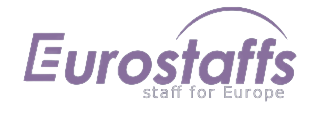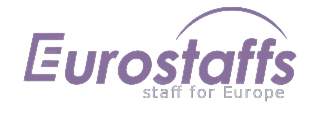Jobs in Europe with Visa Sponsorship A Complete Guide
Jobs in Europe with Visa Sponsorship A Comprehensive Guide
Exploring Opportunities in Europe
Are you dreaming of working in Europe but worried about visa sponsorship? You're not alone. Europe’s growing demand for international talent and its diverse job market make it a promising destination for professionals across the globe. The good news? Many European employers offer visa sponsorship, making it easier for skilled professionals to turn aspirations into reality.
This guide dives into everything you need to know—from the top sectors hiring international talent to practical tips on securing a visa-sponsored job in Europe.
Countries Leading in Visa Sponsorship
Although visa policies vary across Europe, several countries stand out for offering streamlined processes for international workers:
- Germany: Renowned for its thriving engineering and IT sectors, Germany actively welcomes skilled workers.
- the United Kingdom: From healthcare to education, the UK provides visa sponsorship options across a range of industries.
- France: Particularly known for its focus on tech-driven industries and international teaching.
- Ireland: A hub for global corporations and tech startups offering visa support for top talent.
- The Netherlands: A strong advocate of diverse workforces in sectors like logistics and data analysis.
Each country has unique requirements, so always familiarize yourself with individual regulations and employer expectations.
Key Sectors with High Demand for Visa-Sponsored Roles
Certain industries in Europe are actively scouting global talent, and visa sponsorship is often part of the package. Here’s a look at the main sectors offering these opportunities:
IT and Technology
Europe’s ongoing digital transformation has created a surge in demand for skilled IT professionals, including software developers, data scientists, and cybersecurity experts. Countries like Germany, the UK, and the Netherlands often provide visa sponsorship for these roles.
Healthcare
Healthcare systems across Europe face workforce shortages. Doctors, nurses, and specialized healthcare professionals are particularly sought after, with countries like Ireland and Germany offering structured visa schemes.
Education
If you’re looking for teaching jobs in Europe with visa sponsorship, opportunities are plentiful. Many international schools and universities, especially in France and the UK, hire foreign educators and assist with visas.
Engineering
Core engineering roles in industrial automation, civil engineering, and renewable energy are in high demand, especially in Germany, a leader in engineering innovation.
Logistics and Supply Chain Management
The Netherlands and other logistics hubs frequently search for international talent to strengthen their supply chains, especially in roles like operations management, inventory control, and logistics analysis.
Tips for Finding Jobs with Visa Sponsorship in Europe
1. Research Thoroughly
Start by identifying European countries and companies offering visa sponsorship for the type of job you're seeking. Websites such as EuroStaffs (EuroStaffs) list updated positions from reputable immigration-friendly employers.
2. Create a Tailored LinkedIn Profile
Recruiters often search for candidates online. Ensure your LinkedIn profile highlights your skills, certifications, and international work readiness.
3. Leverage Job Boards and Agencies
Explore platforms such as:
- Indeed & Glassdoor: Offer search filters for visa-sponsored positions.
- Eurostaffs: Specializes in roles tailored to international professionals.
- Expatica: Features job listings targeting expatriates.
4. Polish Your Resume and Cover Letter
European employers value clarity and relevance in job applications. Tailor your resume to emphasize skills and experience that match the role, while addressing why you're an ideal international candidate in your cover letter.
5. Network Effectively
Joining industry-specific forums and local European meetups (virtual or in-person) can connect you with professionals who offer insights or referrals for visa-sponsored opportunities.
6. Stay Organized with Applications
Tracking the status of multiple applications is crucial. Maintain a spreadsheet summarizing job postings, application deadlines, recruiter details, and follow-up actions.
Resources for Job Seekers
Take advantage of these platforms and tools to streamline your European job hunt:
- Websites: EuroStaffs, Expatica, and EuropeLanguageJobs.
- Recruitment Agencies: Hays, Adecco, and Michael Page cater to all levels and industries.
- Networking Groups: Join LinkedIn communities focused on European job seekers or relevant sector groups.
Success Stories
Here’s a glimpse into how visa-sponsored roles are transforming careers:
- Maria, a Brazilian Doctor: Maria leveraged a German immigration program to transition into Germany’s healthcare system. With a sponsored work visa, she now serves at a top Berlin hospital.
- Arjun, an IT Specialist from India: After applying for multiple roles on platforms like EuroStaffs, Arjun secured a job in the UK’s tech sector within eight weeks, thanks to employer-sponsored visa assistance.
- Sophia, an Educator from Canada: A teaching job in France became Sophia’s reality after applying through international school networks that facilitate visas for educators.
Their journeys reflect the growing trend of European employers valuing and investing in global talent.
Navigating Visa Sponsorship Legalities
When it comes to visas, understanding your obligations is critical. Here are the key administrative aspects you should know:
- Work Visa Types: Look for employer-sponsored visas like the EU Blue Card, UK Skilled Worker Visa, or Germany’s National Visa for Work.
- Eligibility Criteria: Most countries assess qualifications, work experience, and language proficiency.
- Documentation: Be prepared to provide proof of employment, contracts, work permits, and, in some cases, translated academic credentials.
Start early. Visa processing timelines vary based on your nationality and the selected country.
Overcoming Challenges
1. Language Barriers
While many European employers value multilingual talent, English-speaking roles exist. Consider taking language courses for local adaptation.
2. Professional Recognition
Certain professions may require certifications valid within the EU or respective countries. Check if additional steps, like testing, are needed for your sector.
3. Competition
Visa-sponsored roles are competitive due to the added employer investment. Stand out by highlighting your unique qualifications or international perspective.
4. Adapting to New Work Environments
Cultural differences or workplace expectations may cause initial challenges. Research workplace norms and seek support from expat groups.
Future Trends in the European Job Market
Europe is expected to see the following trends in its labor market:
- Focus on Sustainability and Green Jobs: Countries like Sweden and Denmark are prioritizing eco-friendly industries.
- Growth in Remote Work Opportunities: European companies are increasingly offering remote roles, broadening hiring potential globally.
- Digital Skills Booming Further: With AI and digital transformation reshaping industries, tech expertise is now more essential than ever.
- Improved Immigration Processes: Several EU nations are streamlining visa sponsorship to attract the best international talent.
Why Europe Is a Promising Career Destination
Europe offers a balance of economic growth, diversity, and career opportunities that’s hard to beat. Employers are increasingly recognizing the value of global talent and are willing to simplify the relocation process through visa sponsorship.
Start your European job hunt today! Explore the latest visa-sponsored roles on EuroStaffs or book a consultation to get personalized assistance. Your dream job may only be a click away.

 French
French
 Arabic
Arabic
 English
English



